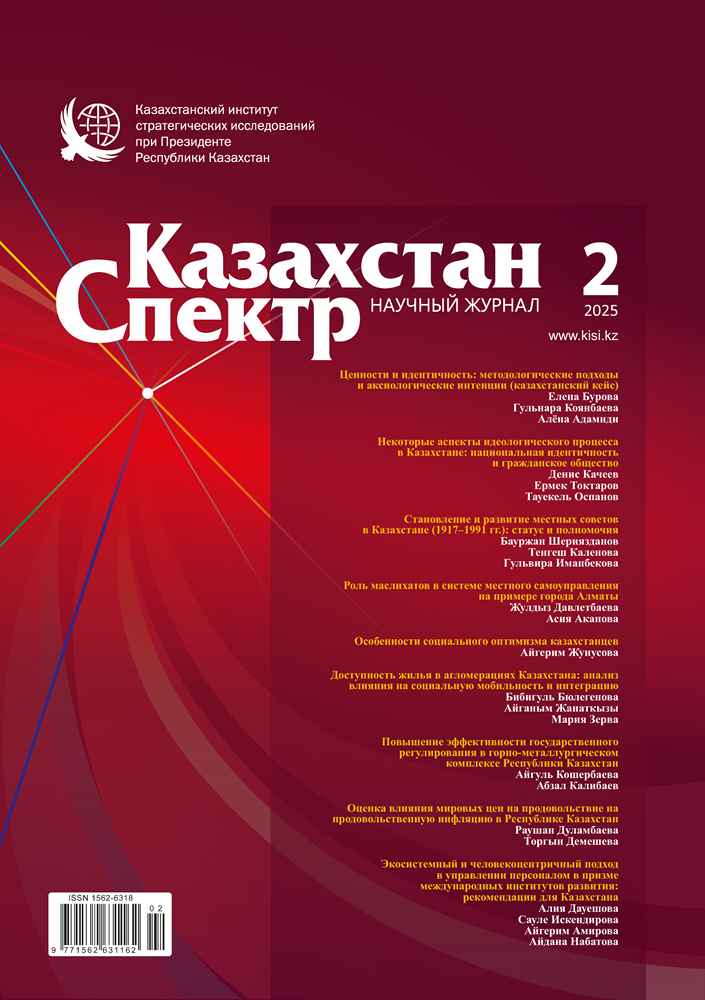Abstract
In Kazakhstan, maslikhats serve as a key element of the local self-governance system, functioning as representative bodies involved in decision-making processes that impact the lives of local communities. The purpose of this article is to examine the role of maslikhats within the local government, using the city of Almaty, the country’s largest metropolis, as a case study. The study employs a comprehensive methodological approach that includes a retrospective analysis of the formation and development of maslikhats, an analysis of the legal framework regulating their activities, and an examination of empirical data through semi-structured expert interviews. The findings of the study highlight both the achievements and challenges associated with the functioning of maslikhats in the context of Kazakhstan's modern local governance system, with a particular emphasis on the insufficient autonomy of these representative bodies. Based on the results, recommendations are proposed to enhance their effectiveness, citizen engagement, and interaction with authorities.

This work is licensed under a Creative Commons Attribution 4.0 International License.
Copyright (c) 2025 Kazakhstan-Spectrum


